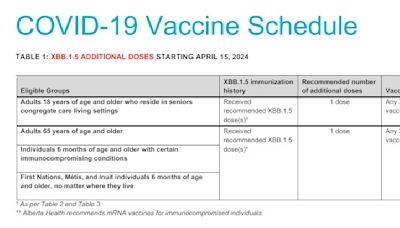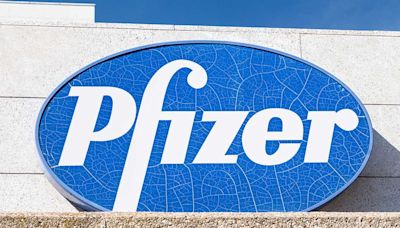Search results
CVS COVID-19 Vaccine Near Columbus OH
www.cvs.comPharmacy LocationBy appointment only4801 West Broad Street(614) 878-756560 North Stygler Road(614) 475-20142020 Eakin Road(614) 276-89894777 Sawmill Road(614) 459-76412532 East Main Street(614) 235-302455 Graceland Blvd(614) 781-94071515 West Broad Street(614) 274-1620Sep 27, 2023 · Getting a COVID-19 vaccine is a safer and more dependable way to build immunity to COVID-19 than getting sick with COVID-19. FACT: COVID-19 vaccination causes a more predictable immune response than an infection with the virus that causes COVID-19. COVID-19 can cause severe illness or death. You can also continue to have long-term health issues ...
- How Vaccines Work
How COVID-19 Vaccines Work. COVID-19 vaccines help our...
- Overview of COVID-19 Vaccines
There are two types of COVID-19 vaccines available in the...
- How Vaccines Work
Nov 3, 2023 · The Novavax COVID-19, adjuvanted vaccine is a protein subunit vaccine. These vaccines include only the parts (proteins) of a virus that best stimulate your immune system. The Novavax COVID-19 vaccine contains harmless S proteins. It also has an ingredient called an adjuvant that helps with your immune system response.
- What Is An mRNA Vaccine?
- How Does The Johnson & Johnson Vaccine Work?
- Do Any of The Covid Vaccines Contain The Coronavirus?
- How Are The Covid Vaccines Different from Other Vaccines?
- Does The Covid Vaccine "Shed" The Virus?
- Can People Who Get Vaccinated Spread Covid from The Vaccination itself?
- If You Get Side Effects from Your Vaccination, Are Those Contagious?
- Can The Covid Vaccines Alter Your DNA?
The Pfizer-BioNTech and Moderna vaccines differ from traditional vaccines in their use of mRNA, a relatively new technology. Instead of introducing a weakened or an inactivated germ into your body, these vaccines inject mRNA, the genetic material that our cells read to make proteins, into your upper arm muscle. According to the Centers for Disease ...
Unlike the Pfizer and Moderna shots, the J&J vaccine use a cold virus, called an adenovirus, to carry the spike gene into the body. J&J’s shot uses the cold virus like a Trojan horse to carry the spike gene into the body, where cells make harmless copies of the protein to prime the immune system in case the real virus comes along.
The CDC notes that none of the vaccinesuse the live virus that causes COVID-19. The Pfizer mRNA vaccine, for example, contains instructions for making a harmless piece of just one of the coronavirus' 29 proteins and your body breaks down those instructions and gets rid of them once it has made the spike protein. "This vaccine is not a live vaccine,...
Typically, a vaccine puts a weakened or inactivated virus into our bodies to trigger an immune response, which then produces antibodies. Those antibodies are what ultimately protect us from getting infected if we ever encounter the real thing. According to the CDC, mRNA vaccines don't contain the virus in any form but instead contain the material t...
In order to "shed" coronavirus particles, you would have to have the live coronavirus in your body, experts say - and none of the available vaccines contain the live virus in any amount. "None of the COVID-19 vaccines can make you sick with COVID-19, nor do they contain the live virus in any amount," says Cook County Department of Public Health' Se...
To this, Joshi also said no: "None of the authorized COVID-19 vaccines contain the live virus that causes COVID-19. This means that a COVID-19 vaccine cannot make you sick with COVID-19, and you cannot transmit the virus to others."
"No. Vaccines train our immune systems to create proteins that fight disease, known as ‘antibodies’, just as would happen when we are exposed to a disease but – crucially – vaccines work without making us sick," Joshi said. "COVID-19 vaccines help our bodies develop immunity to the virus that causes COVID-19 without us having to get the illness."
"mRNA is not able to alter or modify a person’s genetic makeup (DNA). The mRNA from a COVID-19 vaccine never enter the nucleus of the cell, which is where our DNA are kept," the CDC says. "This means the mRNA does not affect or interact with our DNA in any way. Instead, COVID-19 vaccines that use mRNA work with the body’s natural defenses to safely...
- COVID-19 Vaccines and How They Work. How do vaccines work? Vaccines help people develop immunity to a virus or other germ. A vaccine introduces a less harmful part of that germ — or something created to look or behave like it — into a person’s body.
- Getting the Vaccine. How many shots are in the COVID-19 vaccine? Pfizer’s and Moderna’s vaccines require two doses given several weeks apart (Pfizer’s second shot is given three weeks after the first, and Moderna’s is four weeks after the first).The COVID-19 vaccine from Johnson & Johnson requires only one dose.
- Protection and Immunity. How long will it protect me? Will I have to get a COVID-19 shot every year? This is a question researchers are eager to answer. People who are infected with the coronavirus show a decline in protection within a few months, but their immunity may last significantly longer than that.
- Vaccine Safety and Side Effects. How will we know if a COVID-19 vaccine is safe and effective? In order to be declared safe and effective, a COVID-19 vaccine must pass certain tests and standards.
Jan 12, 2021 · A live-attenuated vaccine uses a living but weakened version of the virus or one that’s very similar. The measles, mumps and rubella (MMR) vaccine and the chickenpox and shingles vaccine are examples of this type of vaccine. This approach uses similar technology to the inactivated vaccine and can be manufactured at scale.





